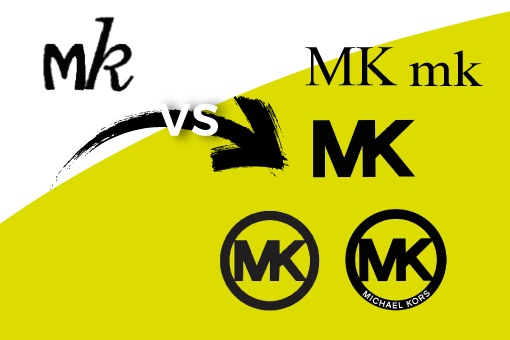Jianfa vs. Michael Kors: the reverse confusion and its boomerang effect
On March 30, 2020, the Beijing Supreme Court denied the counterfeiting of the MK trademark that the plaintiff, Shantou Chenghai Jianfa Handbag Factory (Jianfa), was complaining about against the Michael Kors Company.
These are the facts.
Shantou Chenghai Jianfa Handbag Factory (Jianfa), owner of a brand characterized by the letters MK to identify bags in class 18, had taken action against the Michael Kors Company for, in its opinion, having adopted a series of similar brands, if not identical, for the same type of products.
Jianfa then decided to sue the Michael Kors Company complaining of its trademark infringement and seeking damages of RMB 95 million (approximately € 11,700,000 at current exchange rates). Unfortunately for Jianfa, all the judicial authorities, including the Supreme Court of Beijing, had a different opinion.
The Supreme Court of Beijing argued that the MK brand in the name of Jianfa was a simple combination of two lowercase letters "m" and "k", and that its distinctive character was found only in the overall graphic aspect.
The banality of the literal construction required a comparison from the stylistic point of view, and the brands of the Michael Kors Company appeared quite different from the previous one.
The Supreme Court of Beijing then ruled on the lack of notoriety of the mk brand that Jianfa had claimed to strengthen the distinctive character of its brand. According to the Court, although the earlier mark was registered in 1999, most of the products had been exported, and those distributed in China were too few in number to support the reputation of the mark in the domestic market.
The Court then dwelt on the alleged bad faith of the Michael Kors Company, denying it.
In fact, "MK" was to be perceived as the acronym of "Michael Kors", both adopted in sales channels since 2011, the year of their entry into the Chinese market, and thanks to large-scale use, "MK" was recognized. by the relevant public just like the acronym of the patronymic brand "Michael Kors".
Furthermore, the Court reiterated that the type of consumer and the attentional capacity of the respective parties were also different.
In fact, Jianfa's products, in addition to being mainly intended for export, were cheap, while the opposing ones were sold in exclusive Chinese stores, at a high price.
The Court then focused on the importance of the existence of a title registered in China, but also specified that the owner should always behave in such a way as not to create confusion himself.
On this general premise, the Court found that, starting from 2015, Jianfa had begun to modify its MK brand to the point of making it more and more similar to those of the Michael Kors Company.
This behavior constituted a case of reverse confusion by Jianfa against the Michael Kors Company, which the Court punished, rejecting the appeal in its entirety.
The Praxi IP Team is available for further information at contact@praxi-ip.praxi
These are the facts.
Shantou Chenghai Jianfa Handbag Factory (Jianfa), owner of a brand characterized by the letters MK to identify bags in class 18, had taken action against the Michael Kors Company for, in its opinion, having adopted a series of similar brands, if not identical, for the same type of products.
Jianfa then decided to sue the Michael Kors Company complaining of its trademark infringement and seeking damages of RMB 95 million (approximately € 11,700,000 at current exchange rates). Unfortunately for Jianfa, all the judicial authorities, including the Supreme Court of Beijing, had a different opinion.
What were the motivations of the Beijing Supreme Court in the Jianfa vs Michael Kors Company dispute?
The Supreme Court of Beijing argued that the MK brand in the name of Jianfa was a simple combination of two lowercase letters "m" and "k", and that its distinctive character was found only in the overall graphic aspect.
The banality of the literal construction required a comparison from the stylistic point of view, and the brands of the Michael Kors Company appeared quite different from the previous one.
The Supreme Court of Beijing then ruled on the lack of notoriety of the mk brand that Jianfa had claimed to strengthen the distinctive character of its brand. According to the Court, although the earlier mark was registered in 1999, most of the products had been exported, and those distributed in China were too few in number to support the reputation of the mark in the domestic market.
The Court then dwelt on the alleged bad faith of the Michael Kors Company, denying it.
In fact, "MK" was to be perceived as the acronym of "Michael Kors", both adopted in sales channels since 2011, the year of their entry into the Chinese market, and thanks to large-scale use, "MK" was recognized. by the relevant public just like the acronym of the patronymic brand "Michael Kors".
Furthermore, the Court reiterated that the type of consumer and the attentional capacity of the respective parties were also different.
In fact, Jianfa's products, in addition to being mainly intended for export, were cheap, while the opposing ones were sold in exclusive Chinese stores, at a high price.
The Jianfa has created reverse confusion
The Court then focused on the importance of the existence of a title registered in China, but also specified that the owner should always behave in such a way as not to create confusion himself.
On this general premise, the Court found that, starting from 2015, Jianfa had begun to modify its MK brand to the point of making it more and more similar to those of the Michael Kors Company.
This behavior constituted a case of reverse confusion by Jianfa against the Michael Kors Company, which the Court punished, rejecting the appeal in its entirety.
The Praxi IP Team is available for further information at contact@praxi-ip.praxi

